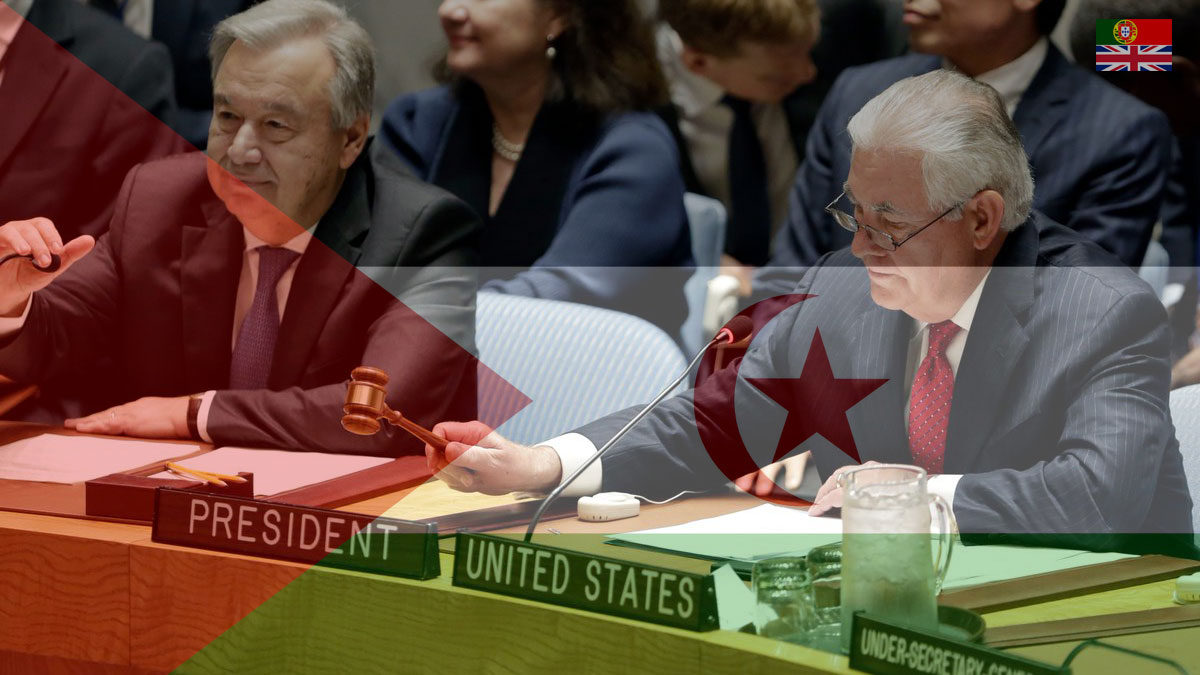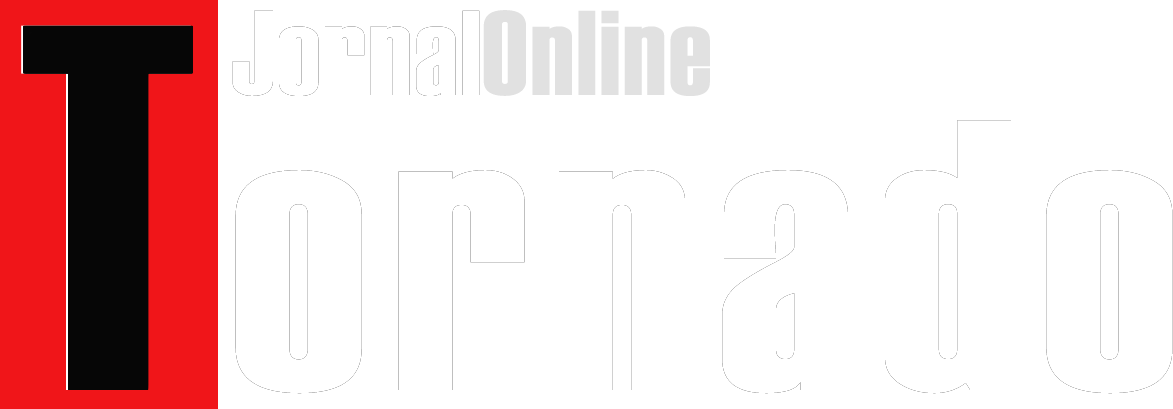Artigo sobre a Resolução sobre Sahara Ocidental aprovada no Conselho de Segurança da ONU, com versão bilingue, português e inglês.
Article on the Resolution on Western Sahara approved in the UN Security Council, with bilingual version, Portuguese and English.
Versão PortuguesaEnglish Version
Resolução sobre Sahara Ocidental aprovada por unanimidade do Conselho de Segurança após reequilíbrio do texto
A reunião do Conselho de Segurança (CS) da ONU que foi adiada de dia 27 para dia 28 e devia ter lugar às 17h00 (hora de Nova Iorque) começou com mais de uma hora de atraso após a confirmação oficial da MINURSO (Missão das Nações Unidas para o Referendo no Sahara Ocidental) da retirada da Frente Polisario da zona tampão de Guergarat, onde o movimento de libertação se refugiou após uma incursão do Reino de Marrocos que violou o acordo de cessar-fogo em Agosto passado.
MINURSO seguirá em Guergarat
O comunicado de Imprensa, divulgado pelo porta-voz do Secretário Geral (SG) dia 28 de Abril à tarde, saúda a decisão da retirada da POLISARIO da zona de Guergarat e informa que “a MINURSO tenciona manter a sua posição na Faixa de Segurança desde Agosto de 2016 e continuar a debater a futura vigilância da zona e toda a gama de questões relacionadas com a Faixa de Segurança com as partes.”
Marrocos tentou com esta manobra não só ocupar mais uma parte do território, como desviar a atenção das Nações Unidas para a área de Guergarat, atrasar assim mais uma vez a negociação e focar a atenção dos média nesta situação em vez das graves violações dos direitos humanos nos territórios ocupados, o muro de separação e o recente acórdão do Tribunal de Justiça Europeu que determina como ilegal a comercialização de qualquer produto originário do Sahara Ocidental por parte de Marrocos, que afirma não ter soberania sobre esse território.
Projecto de resolução sofreu várias alterações
O projecto de resolução que tinha circulado, claramente favorável a Marrocos, foi alterado de forma a ser mais equitativo na abordagem e terminologia utilizadas, permitindo a sua aprovação por unanimidade, algo que não aconteceu nas votações dos últimos anos.
A resolução final aprova a prorrogação do mandato da MINURSO por mais um ano e apela à reactivação da negociação entre Marrocos e Frente POLISARIO. A representante da Suécia salientou no seu discurso que “em primeiro lugar, a resolução emite um forte sinal, claro e unânime: chegou o momento de retomar as negociações que conduzirão a uma solução política justa, duradoura e mutuamente aceitável; uma que preveja a autodeterminação do povo do Sahara Ocidental.” A inclusão de mulheres no processo político, que é referenciada, merece também o entusiasmo da Suécia ao considerar essa opção uma injecção de nova energia.
A resolução enfatiza a necessidade de uma nova dinâmica nas negociações e é recebida com agrado tanto pela Frente Polisario como por Marrocos.
EUA, França e Senegal reconhecem plano de autonomia como solução
A representante dos EUA enfatizou a urgência de nomeação de um novo enviado especial do Secretário Geral para o Sahara Ocidental e a sua visita à área e reafirmou a necessidade de alcançar uma solução política mutuamente aceitável para a autodeterminação do Sahara Ocidental, mas considera a proposta do plano de autonomia de Marrocos como um projecto sério, credível e realista e que é uma abordagem satisfatória para ir ao encontro das aspirações do povo saharaui.
Tanto o Senegal como a França se posicionaram claramente do lado marroquino. O Senegal saudou o Reino Alauita pelos “progressos” e considera o plano de autonomia uma opção séria, realista e credível. François Delattre, embaixador de França, declarou o mesmo, mas mencionando a necessidade da prosperidade económica na região, não tendo manifestado nenhuma preocupação com os direitos humanos apesar de ter respondido a uma jornalista da Innercity Press, dias antes, que “os direitos humanos estão no meu ADN!”
Uruguai acusa CS de tratar o Sahara Ocidental como um ritual
Já o representante do Uruguai lembrou que a questão do Sahara Ocidental passou a ser tratada como um ritual no seio das Nações Unidas, onde se reúne o CS uma vez ao ano, sem se verificarem quaisquer progressos e limitando-se a prorrogar o mandato da MINURSO sem haver um seguimento nem da imprensa nem do CS sobre esta questão. O uruguaio criticou o facto de não haver sessões abertas sobre o Sahara Ocidental entre renovações de mandato, alertou para o facto de, em relação à expulsão de parte do contingente da MINURSO por parte do Reino de Marrocos, as missões de paz das NU não poderem sofrer alterações a não ser por decisão conjunta e do CS e relembrou que o mandato desta missão é a realização do referendo. O representante do Uruguai alertou ainda para a difícil situação dos direitos humanos no Sahara Ocidental que necessita de maior atenção.
União Africana de importância vital para o representante da Etiópia
Em relação ao papel a desempenhar pela União Africana (UA) o representante da Etiópia afirmou esperar que a adesão de Marrocos a esta organização possa melhorar o diálogo, o alinhamento com os princípios fundamentais da UA e realçou a importância do papel a desempenhar pelo próximo enviado especial do SG.
A China e o Reino Unido fizeram intervenções curtas em que apenas reafirmaram a necessidade de se alcançar uma solução política mutualmente aceitável para as partes.
A situação actual foi considerada pelo representante da Itália como o momento para acelerar o processo político e uma nova dinâmica para alcançar a autodeterminação do povo saharaui.
O representante da Bolívia reafirmou o apoio do seu país ao direito à autodeterminação dos povos e saudou a boa vontade de ambas as partes ao terem retirado de Guergarat.
Para o Japão e a Ucrânia o reavivar do processo político é claramente a prioridade nesta questão.
A Federação Russa viu com preocupação o status quo que facilita a possível presença de grupos extremistas e enfatizou que é necessário a reactivação das negociações no sentido de encontrar uma solução justa, duradoura que culminará com a autodeterminação do povo saharaui e a importância do enviado especial do SG na busca desta solução.
França, Senegal e EUA apoiam plano de autonomia de Marrocos
Ficou assim claro que o apoio aos desejos de Marrocos vem de França, Senegal e EUA, um plano de autonomia que não está de acordo com o estabelecido no acordo de cessar fogo de 1991. Mas é também evidente que as manobras e tentativas de alterar a terminologia por parte de Marrocos e que em parte se viram reflectidas no relatório de António Guterres, não passaram no Conselho de Segurança graças à Federação Russa, membro permanente e com direito a veto, e de vários membros não permanentes como Uruguai, Suécia e Etiópia entre outros.
Referendo bloqueado há décadas por Marrocos com apoio de França
A proposta de autonomia de Marrocos foi aceite como uma das perguntas a serem integradas como opção no referendo pela Frente POLISARIO, pelo que a verdadeira questão continua a ser por que é que Marrocos não aceita o referendo que bloqueia há décadas de uma ou outra forma com o apoio explícito de França.
A população saharaui nos territórios ocupados seguirá assim um ano mais sendo vítima das violações cometidas por Marrocos, perante o olhar impassível da comunidade internacional e o silêncio e inacção das Nações Unidas, neste caso da sua Missão de “Paz” ainda desprovida, no seu mandato, de um mecanismo de protecção da população.
Um mecansimo a ser incluído no mandato da MINURSO terá de ser sempre de protecção com as competências idênticas às que tinha a Missão de Paz em Timor. A monitorização só por si não protege em nenhum momento a população e como é evidente pelo relatório do SG (e dos relatórios anteriores) a observação da situação não é difícil, nem inexistente, o que é inexistente é a acção directa desta Missão para prevenir e impedir que Marrocos viole sistematicamente os direitos humanos mais básicos dos saharauis.
O Conselho de Segurança, à semelhança da União Europeia, vê como parceiros credíveis os vários organismos de Direitos Humanos criados por Marrocos, nomeadamente o Conselho Nacional de Direitos Humanos (CNDH) com sedes nos territórios ocupados (El Aaiun e Dahkla). O CNDH, não mais que uma extensão do palácio de Mohamed VI e que representa os interesses do Estado , não é mencionado, nem reconhecido como interlocutor pela Associação Marroquina de Direitos Humanos (AMDH) que devido à sua acção de denúncia e defesa de activistas marroquinos e saharauis já foi várias vezes colocada na lista negra do Reino Alauíta.
Também não há referência às numerosas associações saharauis, que mantêm contactos regulares com o Alto Comissariado das Nações Unidas para os Direitos Humanos.
Resolution on Western Sahara unanimously approved by the SC after rebalancing the text
The UN Security Council meeting that was postponed from 28th April to the 29th at 5:00 p.m. (New York time) began after the official confirmation from MINURSO (United Nations Mission for the Referendum in Western Sahara) of withdrawal from Polisario Front of the Guergarat buffer zone where the liberation movement had to deploy its forces after a cease fire agreement violation by the Kingdom of Morocco last August.
MINURSO will continue in Guergarat
The press release presented by the Secretary-General (SG) spokesman on 28th April in the afternoon, welcomed the decision taken by POLISARIO to withdraw from the Guergarat area and states that “MINURSO intends to maintain its position in the Security Strip held since August 2016 and continue to discuss future surveillance of the area and a whole range of issues related to a Range of Security with the parties. “
Morocco tried with this manoeuvre not only to occupy one part more of the territory but also to divert the attention of the United Nations to the area of Guergarat, and away from the occupied Territories, the separation wall and the recent ruling of the European Court of Justice which determines as illegal the marketing of any products originating from Western Sahara by Morocco, which according to to the ruling has no sovereignty over that territory.
Draft resolution underwent several changes
The draft resolution which had circulated and which was clearly in favour of Morocco was amended in order to be more equitable in the approach and terminology used, which allowed for its unanimous approval something that has not happened in the last years.
The final resolution approves the extension of the mandate of MINURSO for one more year and calls for the urgency of the relaunching of the negotiations between Morocco and the Frente POLISARIO. In her speech, the representative of Sweden emphasized that, first of all, “the resolution sends a strong, clear and unified signal: the time has come to resume negotiations that will lead to a just, lasting and mutually acceptable political solution; one that will provide for the self-determination of the people of Western Sahara. This Council is also calling, for the first time, for the meaningful participation of women in the political process. The participation of women would inject new energy into the political process”.
The resolution emphasizes the need for a new momentum in the negotiations and is welcomed by both the Polisario Front and Morocco.
USA, France and Senegal recognize autonomy plan as solution
The US representative emphasized the urgency of the appointment of a new special envoy to the General Secretariat for Western Sahara and his visit to the area and reaffirmed a need to achieve a mutually acceptable political solution for the self-determination of the Western Sahara, furthermore “USA sees the autonomy proposal of Morocco as a serious, credible and realistic project which is a satisfactory approach to meeting the aspirations of the Saharawi people.”
Both Senegal and France were clearly on the Moroccan side. Senegal welcomed the Kingdom for it’s “progress” and considered the autonomy plan a serious, realistic and credible option. François Delattre, the French ambassador, said the same, but mentioned the need for economic prosperity in the region, and did not express any concern about human rights despite having responded to an Innercity Press journalist ” Humand Rights are in my DNA! ”
Uruguay accuses CS of treating Western Sahara as a ritual
The representative of Uruguay, said that Western Sahara, is being treated like a ritual once a year in the ONU as the SC meets once a year without any real progress or development other that the renewal of the mandate of MINURSO without follow-up neither by the press nor the SC. He also criticized the fact that there are no open sessions on Western Sahara between renewals of the mandate. The ambassador alerted that in relation to the unilateral expulsion of part of the MINURSO contingent by the Kingdom of Morocco, the UN peace missions cannot suffer any changes that are not supported by a joint decision by the CS and recalled that the mandate of this mission is a to perform the referendum. He also expressed his concern about the difficult human rights situation in Western Sahara needs that needs more attention.
African Union of vital importance to the representative of Ethiopia
Regarding the role played by the African Union (AU), the representative of Ethiopia excepts that recent joining of Morocco will improve dialogue and alignment with the fundamental principles of the AU, and thinks that the role of the SG’s Special Envoy is very important.
China and the United Kingdom made short interventions in which they merely reaffirmed the need for a mutually acceptable political solution for the parties.
The current situation was considered by the representative of Italy as the moment to accelerate the political process and give a new dynamic to achieve the self-determination of the Saharawi people.
The representative of Bolivia reaffirmed his country’s support for the right to self-determination of peoples and welcomed the goodwill of both sides in withdrawing from Guergarat.
For Japan and Ukraine to revive the political process is clearly the priority on this issue.
The Russian Federation views with concern the status quo that facilitates the possible presence of extremist groups and emphasizes that it is necessary to reactivate the negotiations in order to find a just and lasting solution that will culminate in the self-determination of the Saharawi people and the importance of the Special SG in the search for this solution.
It became clear that support for Morocco’s wishes comes from France, Senegal and the USA, a plan for autonomy that is not in line with the 1991 ceasefire agreement. But it is also clear that the manoeuvres and attempts by Morocco to change the Terminology, which is reflected in the report by António Guterres, did not pass through the Security Council thanks to the Russian Federation, a permanent member with veto, and several non-permanent members such as Uruguay, Sweden and Ethiopia among others.
Referendum blocked for decades by Morocco with support from France
Morocco’s autonomy proposal has already been accepted as one of the questions to be integrated as an option in the referendum by Frente POLISARIO, so the real question remains why Morocco does not accept the referendum which it has blocked for decades in one way or another with the support of France.
The Sahrawi population in the occupied territories will thus continue for another year to be victim of the violations committed by Morocco in the face of the impassive gaze of the International Community and the silence and inaction of the United Nations, in this case of its “Peace” Mission which continues without a mechanism for the protection of the population.
A mechanism to be included in MINURSO’s mandate will always have to be for protection with the same powers as the Peace Mission in Timor. Monitoring alone does not in itself protect the population and as is evident from the SG report and from the previous reports the observation of the situation is neither difficult nor non-existent, what is non-existent is the direct action of this Mission to prevent and hinder Morocco to systematically violate the most basic human rights of the Saharawi.
The Security Council, like the European Union, sees the various human rights bodies set up by Morocco, such as the National Human Rights Council (CNDH) with offices in the occupied territories (El Aaiun and Dahkla) as credible partners. The CNDH is no more than an extension of the palace of Mohamed VI and represents the interests of the State, it is curious to note that the Moroccan Association of Human Rights (AMDH) is not mentioned or recognized as an interlocutor. This association has been repeatedly placed on the black list of the Moroccan Kingdom due to its denunciation and defence action of Moroccan and Saharawi activists.
Neither is there a reference to the numerous Sahrawi associations, which contact on a regular basis with the High Office of Human Rights of the UN.




